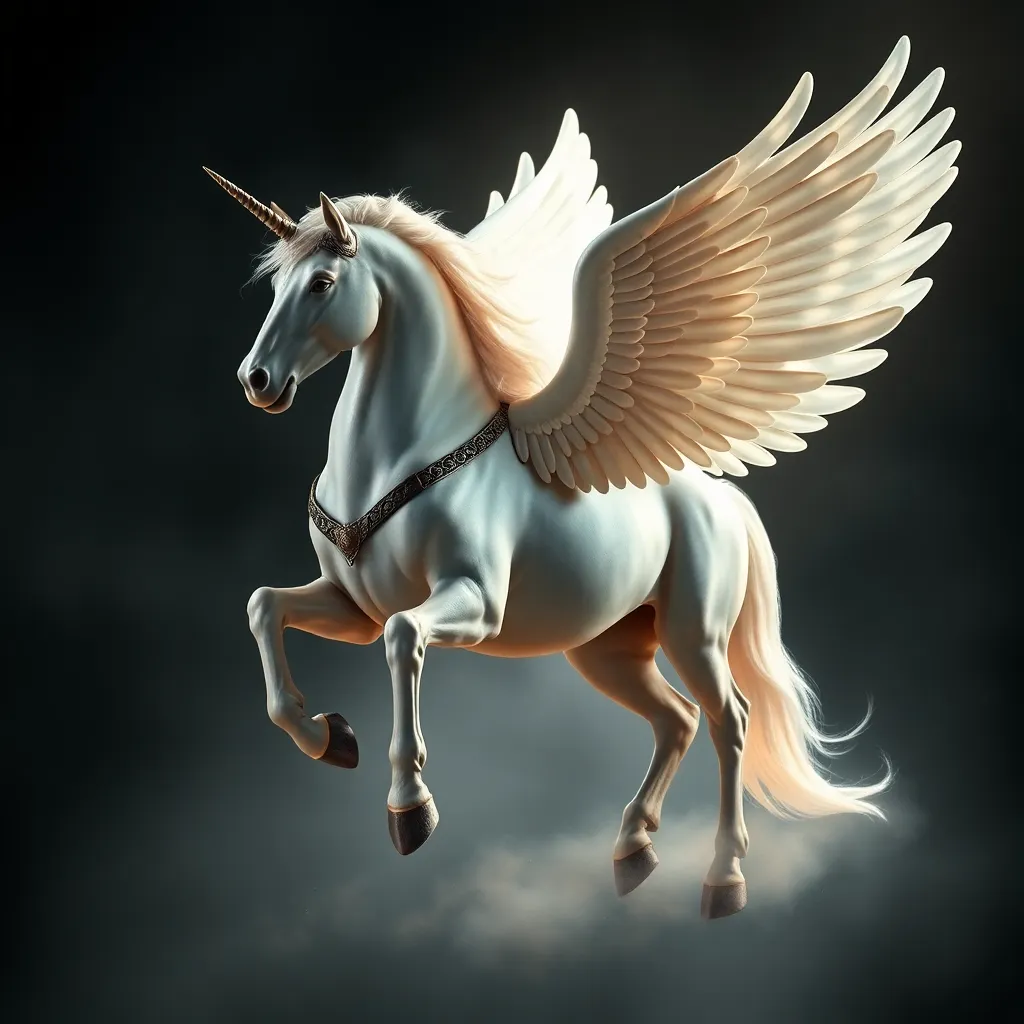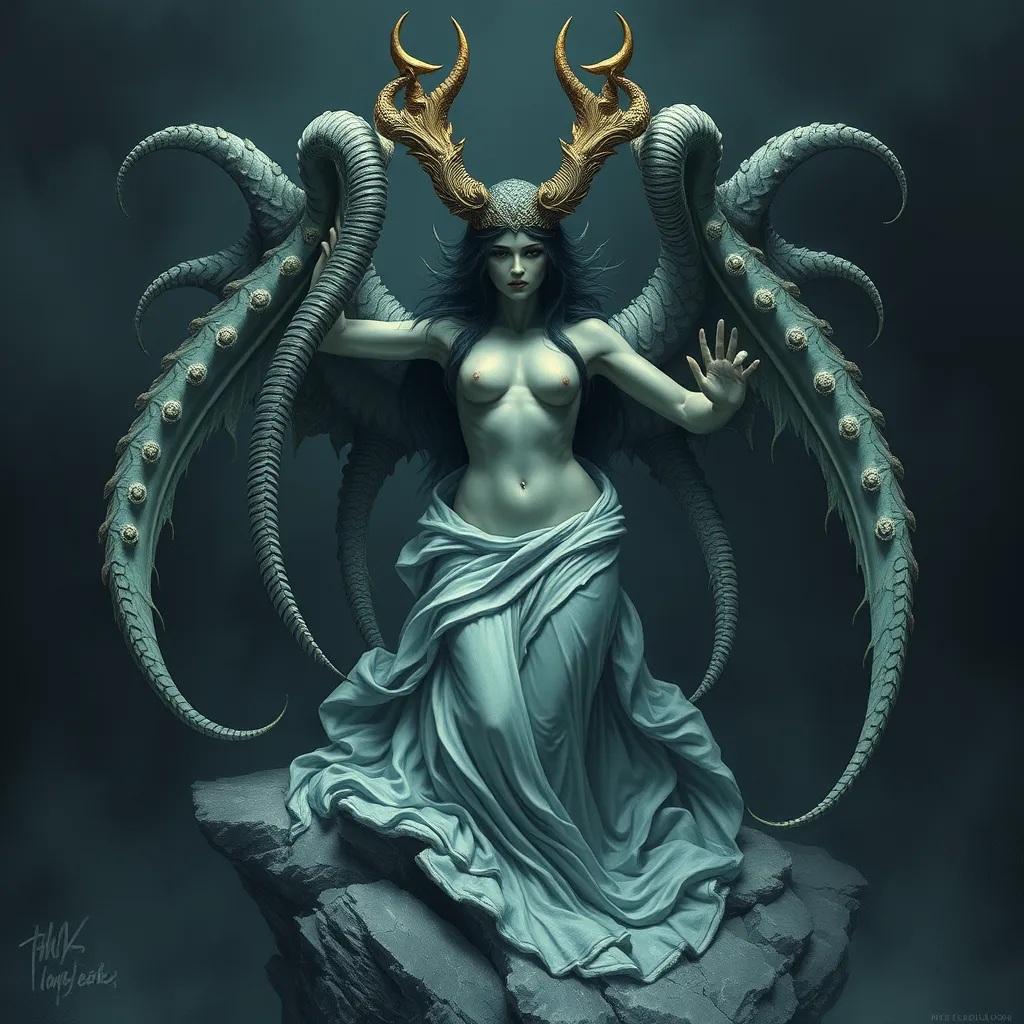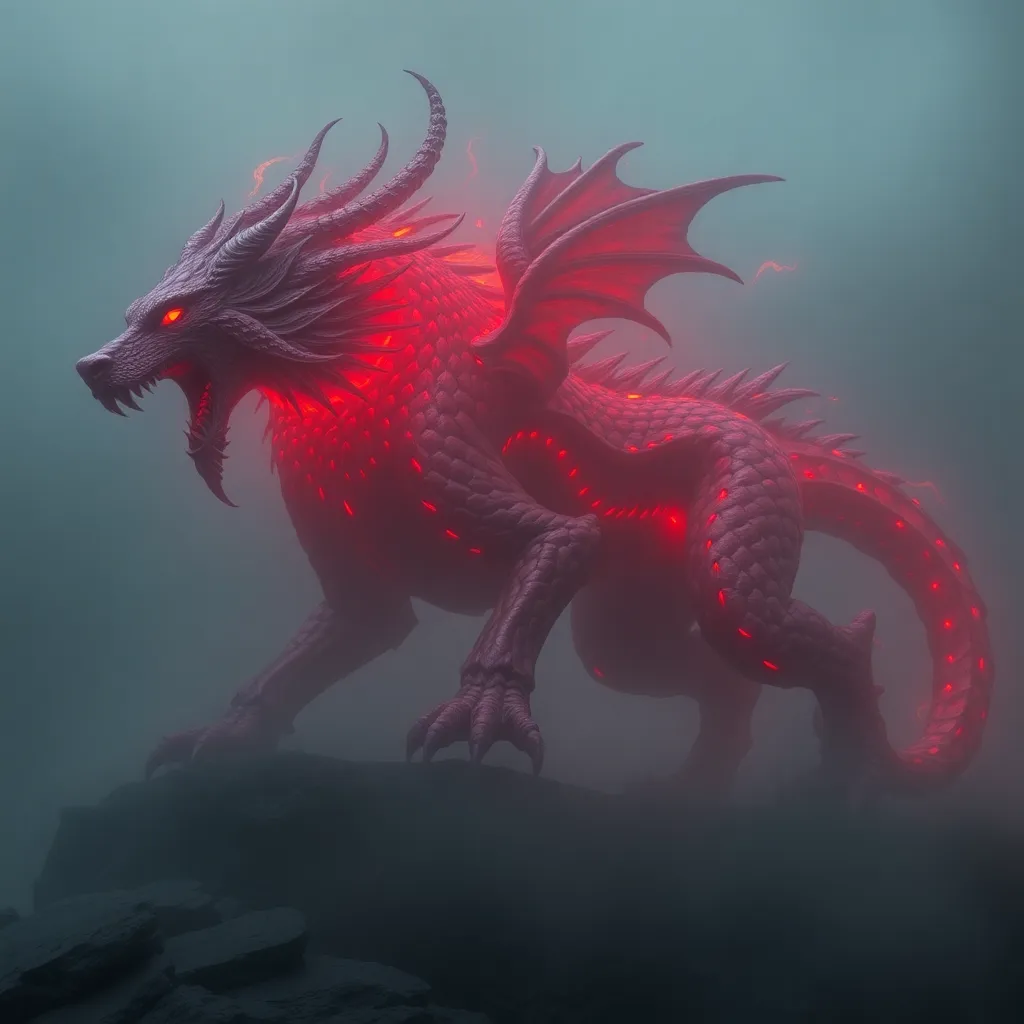The Mythological Horse of Wisdom: Examining the Use of Pegasus as a Symbol of Knowledge and Understanding
I. Introduction
In the realm of Greek mythology, few creatures capture the imagination quite like Pegasus, the winged horse. Born from the blood of Medusa, Pegasus is not only a symbol of grace and power but also embodies the profound connection between wisdom and knowledge. Throughout history, symbols have played a critical role in conveying complex ideas, and Pegasus stands as a compelling representation of understanding, inspiration, and enlightenment. This article aims to delve into the origins, symbolism, and lasting legacy of Pegasus, exploring how this mythological figure continues to inspire the quest for knowledge in contemporary society.
II. The Origins of Pegasus in Greek Mythology
The story of Pegasus begins with his extraordinary birth. According to mythology, he sprang forth from the neck of Medusa when she was slain by the hero Perseus. This lineage connects Pegasus to various key figures in Greek lore.
- Perseus: The hero who defeated Medusa, harnessing Pegasus for his journey, further amplifying the horse’s association with bravery and triumph.
- Athena: The goddess of wisdom, who often provides guidance to heroes, further intertwining the themes of knowledge and courage with Pegasus.
In various myths, Pegasus is depicted as a companion and a source of assistance for heroes, particularly during quests that require great intellect and insight. His role is not merely as a mount but as a symbol of the enlightenment that comes from overcoming challenges.
III. Pegasus as a Symbol of Wisdom
Pegasus transcends his physical form, representing a deeper interpretation of knowledge and wisdom. Many interpretations consider Pegasus as a manifestation of intellectual pursuit and enlightenment.
- The Connection to Flight: The act of flying symbolizes an elevated perspective, allowing one to rise above mundane concerns and see the broader picture of life and understanding.
- Cultural Perspectives: Across various historical contexts, Pegasus has often been seen as a figure that inspires creativity and intellectual growth, embodying the spirit of inquiry.
His wings suggest liberation from ignorance and the ability to soar into the realms of thought and enlightenment, making him a perfect representation of wisdom.
IV. The Role of Pegasus in Arts and Literature
Throughout history, Pegasus has been a prominent figure in both art and literature. Artists and writers have depicted him in numerous ways, highlighting his significance as a symbol of knowledge.
- Ancient Art: Pegasus has been featured in many ancient sculptures and pottery, often depicted in flight, symbolizing freedom and the pursuit of wisdom.
- Literary Works: In literature, Pegasus appears in various forms, from classical poetry to modern novels. His presence often signifies the theme of inspiration and the transformative power of knowledge.
In contemporary storytelling, Pegasus continues to influence narratives, representing the ideal of striving for understanding and enlightenment in a complex world.
V. Pegasus and the Pursuit of Knowledge
As a metaphor for the quest for knowledge, Pegasus embodies the journey of discovery that individuals undertake in their lives. His association with creativity and inspiration further illuminates this concept.
- Creativity and Wisdom: The ability to think creatively often leads to profound insights and knowledge, paralleling the flight of Pegasus as a journey toward enlightenment.
- Inspirational Case Studies: Many individuals and organizations have drawn inspiration from Pegasus in their pursuits of knowledge, using his symbolism to motivate and encourage innovation.
This metaphor extends beyond individual quests, resonating with educational initiatives and intellectual movements that seek to empower individuals through learning.
VI. Cross-Cultural Interpretations of Pegasus
While Pegasus is primarily rooted in Greek mythology, similar mythological creatures exist in various cultures, each embodying themes of wisdom and knowledge.
- Comparison with Other Creatures: For instance, the winged horse of Hindu mythology, Uchchaihshravas, and the Chinese dragon, often associated with wisdom and power, reflect similar ideals.
- Universal Theme of Wisdom: Across different societies, the symbolism of winged creatures often represents the pursuit of higher knowledge and enlightenment.
These variations in symbolism highlight the universal human penchant for seeking understanding, showcasing how different cultures interpret similar concepts through their mythologies.
VII. The Legacy of Pegasus in Modern Society
In modern culture, Pegasus remains a powerful symbol, appearing in various forms of media and popular culture.
- Film and Advertising: Pegasus is often featured in films and advertisements, symbolizing aspiration, creativity, and the pursuit of dreams.
- Educational Connections: Many educational initiatives draw on the myth of Pegasus to inspire students to embrace learning and creativity as pathways to wisdom.
The enduring relevance of Pegasus as a symbol of wisdom continues to resonate in contemporary society, encouraging individuals to rise above challenges and seek knowledge.
VIII. Conclusion
In summary, Pegasus serves as a multifaceted symbol of knowledge, embodying the ideals of wisdom, creativity, and the relentless pursuit of understanding. His legacy, rooted in Greek mythology, has transcended time and culture, influencing countless individuals and societies. As we explore the meanings behind mythological figures like Pegasus, we uncover valuable insights into our own journeys toward knowledge and enlightenment. The stories of such creatures invite us to reflect on the enduring impact of myths in shaping our understanding of the world and encourage us to continue exploring the profound depths of knowledge and wisdom.



